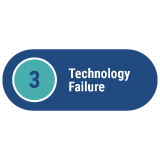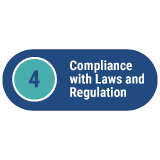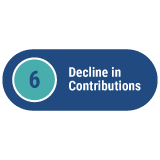Board committee activities 2020/2021 and outlook for the year ahead
Audit and Risk Assurance Committee (ARC)


Chairman
Fred Bamwesigye
Members
Professional Advisors
Audit and Risk Assurance Committee (ARC)
The Committee comprises of only Non-Executive Directors and the Managing Director only attends on invitation.
The Committee assists the Board to effectively discharge its oversight responsibilities for financial reporting, risk management, internal controls, internal and external audit and regulatory compliance and governance.
The ARC, on behalf of the Board, undertakes detailed monitoring of internal controls through the IA function. The Board has reviewed the system of internal control, including financial controls for the year under review up to the date of approval of this Integrated Report.
2020/2021 ARC Activities
The committee focused its attention on regulatory challenges, trends of litigation, information security and business continuity planning and management. It encouraged the continuing improvement of capabilities to identify and assess emerging risks.
ARC Committee’s key activities in FY 2020/2021 included oversight, review and approval of:
Key Activities
Key Activities
Key Activities
Key engagements
Challenges during FY 2020/2021
Key focus for the following year FY 2021/2022
Risk Oversight










Capitals Impacted

Financial Capital

Intellectual Capital

Manufactured Capital

Social and Relationship Capital
Stakeholders Impacted

Regulators & Legislators
The Committee is satisfied that it has fulfilled its mandate as set out in the Committee’s terms of reference and work plan as required in the Board Charter during the period under review.
Board committee activities 2020/2021 and outlook for the year ahead
Investments and Project Monitoring Committee (IPMC)


Chairperson
Patrick Ocailap
Members
Professional Advisors
Investments and Project Monitoring Committee (IPMC)
The Investments and Project Monitoring Committee (IPMC) of the Board is responsible for assisting the Board to fulfill its oversight responsibility as provided under Section 30 of the NSSF Act, which provides:
'All monies in the Fund, including the reserve account, which are not for the time being required to be applied for the purpose of the Fund shall be invested in such investments as may be determined by the Board in consultation with the Minister'.
The main responsibilities of the Committee:
IPMC Committee’s key activities in FY 2020/2021 included:
Key activities:
Key activities:
Challenges during FY 2020/2021
Key focus for the following year FY 2021/2022
Capitals Impacted

Financial Capital

Intellectual Capital

Manufactured Capital

Social and Relationship Capital
Stakeholders Impacted

Members

Suppliers
The Investments and Project Monitoring Committee of the Board complied with its mandate for the year under review. All the scheduled meetings were held.
Board committee activities 2020/2021 and outlook for the year ahead
Finance Committee


Chairperson
Isaac Magoola
Members
Finance Committee
The role of the Finance Committee of the Board is to assist the Board to fulfill its oversight responsibility and mandate in the following key areas:
The main responsibilities of the Committee:
The Finance Committee’s key activities in FY 2020/2021 included review, monitoring and approval of:
Key activities:
Key activities:
Challenges during FY 2020/2021
Key focus for the following year FY 2021/2022
Capitals Impacted

Financial Capital

Intellectual Capital

Natural Capital

Manufactured Capital

Social and Relationship Capital
Stakeholders Impacted

Members

Suppliers

Communities
The Finance Committee of the Board complied with its mandate for the year under review. All the scheduled meetings were held.
Board committee activities 2020/2021 and outlook for the year ahead
Staff Administration and Corporate Affairs Committee (SACA)

Chairperson
Florence Namatta Mawejje
Members
Staff Administration and Corporate Affairs Committee (SACA)
The Staff Administration and Corporate Affairs Committee (SACA) of the Board is responsible for:
SACA Committee’s key activities in FY 2020/2021 included the following:
Key activities:
Key activities:
Challenges during FY 2020/2021
Key focus for the following year FY 2021/2022
Capitals Impacted

Human Capital

Intellectual Capital

Natural Capital

Manufactured Capital

Social and Relationship Capital
Stakeholders Impacted

Members

Employees

Regulators & Legislators

Communities
The Staff Administration and Corporate Affairs Committee of the Board complied with its mandate for the year under review. All the scheduled meetings were held.
In aligning to KING IV principles, the Fund considered the formalisation of a Group, Transformation, Social and Ethics Committee (GTSEC) during the reporting period, however it is confident that the current governance structures have sufficient oversight of the following responsibilities:
| Responsibilities | NSSF Board Committee oversight |
|---|---|
| Social and economic development | Staff and Corporate Affairs Committee |
| Ethics | Audit and Risk Assurance Committee |
| Environment | Investments and Project Monitoring Committee |
| Stakeholder engagement and management | Staff and Corporate Affairs Committee |
| Sustainability and community development | Staff and Corporate Affairs Committee |

